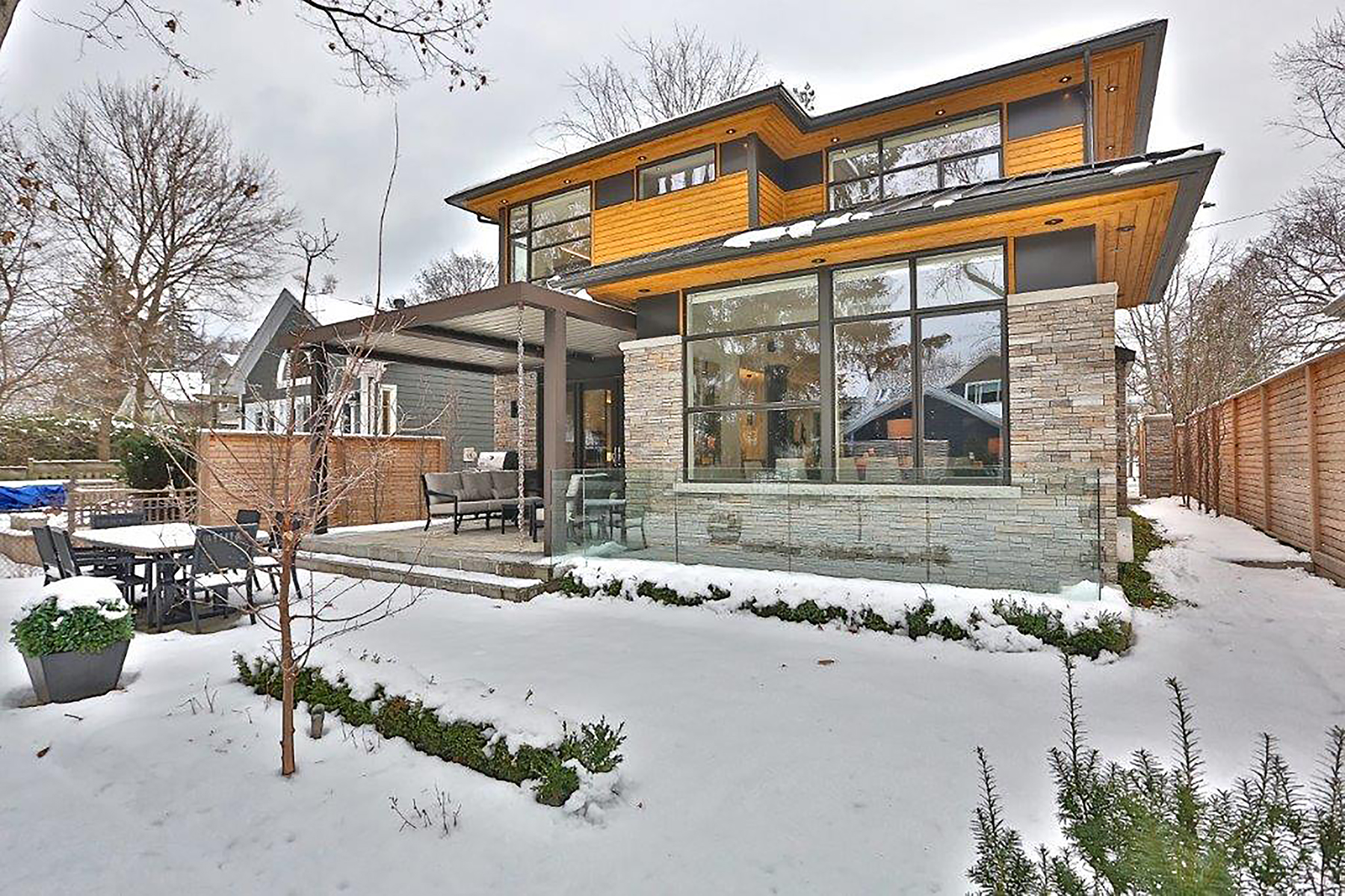As the temperature drops and the icy winds start to blow, it’s vital to winter proof your home. By preparing for cold weather, you can ensure the longevity and performance of your home’s key components, like the windows. In addition, the right steps can help minimize frost and condensation.
Frost and Condensation
Frost and condensation are common issues that homeowners face during the winter months. Understanding the causes and effects of frost and condensation is crucial in finding effective strategies for prevention.
Condensation occurs when warm, moist air meets a cold surface, such as a windowpane. This leads to the formation of water droplets, foggy windows, and even mould growth if not properly managed. Frost, on the other hand, forms when the temperature is so low that condensation freezes on the window surface, creating a layer of ice.
Both condensation and frost can be problematic as they obstruct the view, reduce natural light, and can potentially damage the window frames and sills.
What Causes Condensation at Home?
The primary culprit for condensation is excessive moisture in the air. Too much moisture can come from:
- Showers, washing dishes and clothes, cooking, aquariums, standing water, people, pets and plants.
- Drying laundry indoors.
- Improperly venting clothes dryers.
- Damp basements.
- Improperly set humidifiers.
- Humid outdoor air.
The Importance of Preventing Frost and Condensation at Home
Preventing frost and condensation at home is essential for several reasons. For starters, excessive condensation can result in the growth of mould and mildew. Of course, mould and mildew can be harmful to your health. Mould spores can cause allergies and respiratory issues, especially in individuals with preexisting conditions. Additionally, frost can cause structural damage to windows, leading to higher energy bills as heat escapes from your home.
Common Areas Where Condensation Can Form
Condensation can form on various surfaces within your home, but certain areas are more prone to this issue. And windows are one of the primary locations where you can see condensation. Cold outdoor air meets warm indoor air near the windows, causing moisture to accumulate. Walls and ceilings can also experience condensation, especially if they are poorly insulated.
3 Tips for Preventing Condensation on Windows
- Proper Ventilation: Ensure that your home is nicely ventilated, especially in areas prone to moisture, such as kitchens and bathrooms.
- Control Humidity Levels: Use tools like humidity sensors and humidifiers to control the humidity level in your home.
- Upkeep: Check these essential window maintenance tips to keep your windows in good condition and reduce the risk of condensation.
3 Tips for Preventing Frost on Windows
- Window Coverings: Use insulating window coverings such as thermal curtains or blinds to create an extra barrier against the cold. These coverings help to reduce heat loss and prevent frost formation.
- Air Sealing: Inspect your windows for any air leaks and seal them using caulking or weatherstripping. Properly sealed windows prevent cold air infiltration, reducing the likelihood of frost formation.
- Airflow: Open your curtains and blinds for correct airflow. Remember, heat from your heating system may not be warming up your windows if they’re blocked by coverings.
The Role of Dehumidifiers
Dehumidifiers can be a valuable tool in preventing condensation in your home. They work by removing excess moisture from the air, reducing the humidity levels.
We recommend that you place dehumidifiers in areas susceptible to moisture, including basements, bathrooms, and laundry rooms. Please also keep the relative humidity in your home in the range of 30-40%. Relative humidity levels can be measured with a hygrometer. Read more about humidity levels in the home here.
Use Your Exhaust Fans and Vents
You should use your vents and exhaust fans in kitchens and bathrooms to withdraw excess moisture from the air. These fans should vent outdoors to prevent the moist air from being circulated back into your home. Additionally, opening windows periodically to allow for fresh air flow can help. Please also ensure that furniture and other objects are not blocking the airflow near windows, as this can contribute to condensation issues.
The Benefits of Heat Recovery Ventilators (HRVs)
Heat Recovery Ventilators (HRVs) can play an important role in controlling condensation. HRVs work by exchanging stale indoor air with fresh outdoor air while recovering heat from the exhaust air. This process helps maintain a balanced humidity level and prevents excessive moisture buildup.
HRVs also improve indoor air quality by reducing the concentration of pollutants and allergens. Consider installing HRVs in areas prone to condensation, such as kitchens and bathrooms.
The Best Types of Windows for Cold Weather
Many homeowners consider replacing windows in the winter to components that are designed to handle harsher weather.
Benefits of Dual Glaze Windows for Winter
Dual glaze windows consist of two layers of glass with an insulating gas, such as argon, in between. This design provides enhanced insulation, making them highly effective in cold weather. The air gap between the glass layers acts as a barrier, reducing heat transfer and preventing cold air from entering your home. Dual glaze windows also help to minimize condensation by keeping the interior glass surface warmer, reducing the likelihood of moisture accumulation.
In addition to their insulation properties, these windows offer soundproofing benefits, reducing outside noise infiltration. They are a good choice for winter proofing your home, as they provide a good balance between energy efficiency and affordability.
Benefits of Triple Glaze Windows for Winter
Triple glaze windows take insulation to the next level by incorporating three layers of glass with two insulating gas filled gaps. The additional layer of glass enhances thermal efficiency, making triple glaze windows highly effective in extremely cold climates.
The multiple layers and gas barriers significantly reduce heat loss, ensuring that the warm air stays inside your home and the cold air remains outside. Triple glaze windows also provide excellent noise reduction, creating a peaceful and quiet environment.
Benefits of Low E Windows for Winter
Low emissivity (Low E) windows are designed with a unique coating that reflects some heat back into your home, reducing heat loss through the glass. This coating allows natural light to pass through while preventing heat from escaping, making them an energy efficient choice for winter proofing. Of course, by minimizing heat transfer, these windows help maintain a comfortable indoor temperature. Ultimately, decreasing the reliance on heating systems and ultimately lowering energy bills.
Another advantage of Low E windows is their ability to block harmful ultraviolet (UV) rays. This shields items in your interior like furniture from fading or discoloration caused by sun exposure.
At Golden Windows, we offer many different products, including awnings, sliders, and hung windows. Many of our products are available with different Low E options and in dual or triple glaze.
For example, here are some features of our GoldenClad® Casement Windows:
- Select from 4 standard, 30 optional or unlimited custom colours
- 4 different Low E Options, all include Argon gas
- 3 standard and 2 optional hardware finishes to choose from
- Multiple grille options including grilles between the glass, removable wood grilles and simulated divided lights (SDL)
- Choose from Colonial, Victorian, Muskoka and Custom Grille Patterns
- Exterior Brickmould and sill nosing are available
- White, Black, Coppertone or wood grain screens available
- Available in Triple Glaze for increased energy efficiency
Other Factors to Consider When Choosing Windows for Cold Weather

Here are some other factors to consider when choosing windows for homes in cold areas.
- Energy Efficiency: Look for windows with a high energy efficiency rating, such as those certified by ENERGY STAR. These windows are designed to meet strict energy performance standards and can significantly reduce heat loss.
- Frame Material: Select window frames made of materials with good insulating properties, such as viny or wood. Such materials help to minimize heat transfer and improve overall energy efficiency.
- Window Orientation: Consider the direction your windows face and the amount of sunlight they receive. South facing windows allow for more solar heat gain during the winter, while north facing windows may require additional insulation.
Professional Window Installation for Winter Proofing
To ensure optimal performance and energy efficiency, it is recommended to have your windows professionally installed. Experienced window installers have the knowledge and expertise to properly seal and insulate your windows, minimizing air leakage and maximizing their winter proofing capabilities.
Professional installation also ensures that your windows are aligned correctly, preventing any issues that may arise due to improper fitting. By investing in professional window installation, you can have peace of mind knowing that your windows are winter proofed to the highest standards.
How Our Installation Services Work
Shortly after you contact Golden Windows Limited regarding a replacement window opportunity, an appointment with an Installation Sales Representative will be determined. They will come to your home at a time that is convenient for you, complete a free onsite measure and discuss your window and door options that you have available using Golden Windows.
A quote will be provided to you from the Installation Sales Representative based on the original meeting and upon approval of that quote a member of our Certified Installer Team will then set up an appointment to come to your home for a final measure. They will confirm all the job details a second time. Once sizes are confirmed, your product will then be custom made for you and the Certified Installer will schedule an install date at your convenience. This ensures a fast and stress free installation.
Can You Completely Prevent Condensation?
While implementing effective strategies can significantly reduce condensation, it is impossible to prevent it completely. Some degree of condensation will always be a natural occurrence with your windows.
Tips for Maintaining Your Windows During Winter
Good maintenance can protect your windows and reduce the risk of frost and condensation. Periodically check your windows for any cracks or damage that needs repair. Please also keep your windows from debris and dirt, as this can promote condensation. Greasing the opening mechanism before the temperature drops can also help it stay lubricated and functional.
Why Buy New Windows from Golden Windows
Golden Windows is one of the top windows manufacturers in the world, servicing Ontario, the United States and other international countries such as the Cayman Islands, Great Britain and Japan. Despite being in operation for decades, we remain a family owned and operated company today.
And by being one of only a few window and door companies that have obtained the ISO 9001 designation, we are able to consistently provide exceptional lead times and on time delivery of our windows and doors.
Our windows and doors are designed to provide you with trouble free performance and easy maintenance because we believe in continuously improving our products and services. We are confident that you will enjoy your Golden Windows for many years to come.
As discussed, two common problems that arise during winter are condensation and frost. These issues not only obstruct your view but can also cause damage to your windows if left unaddressed. Take steps to ensure that frost and condensation don’t hinder your windows. Invest in new windows for winter if necessary to create a barrier against the harsh elements and ensure a snug environment for you and your family.

